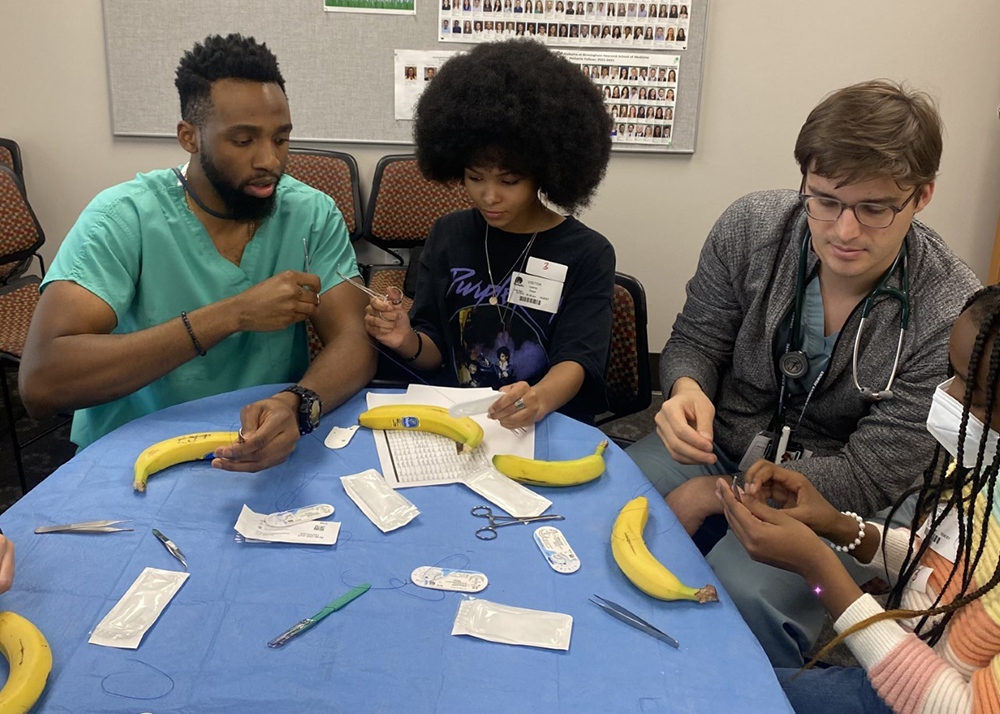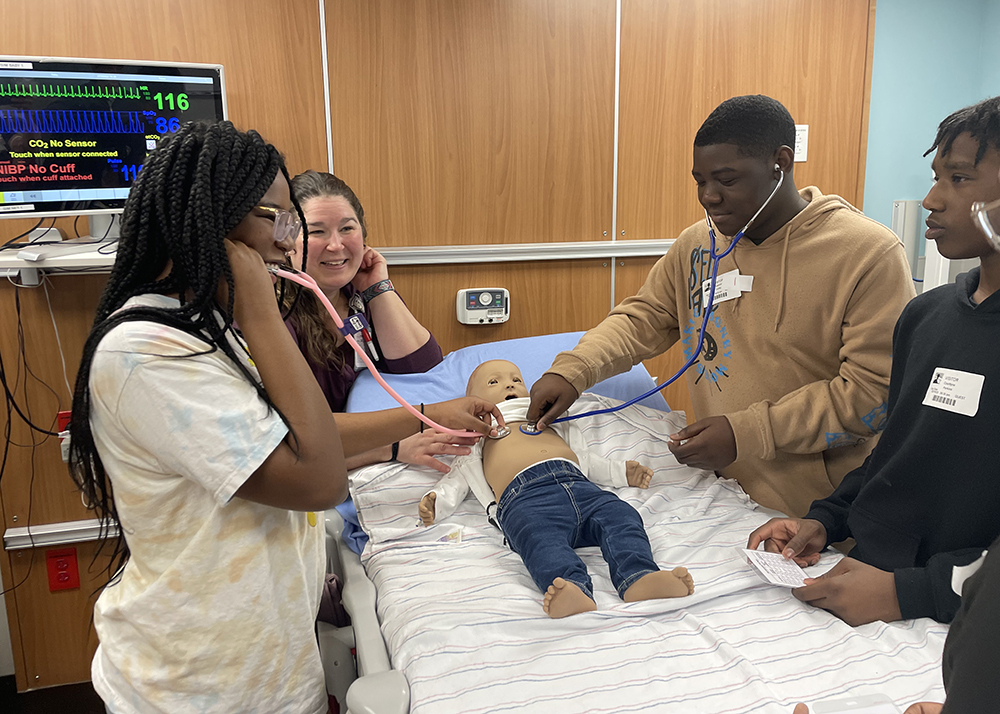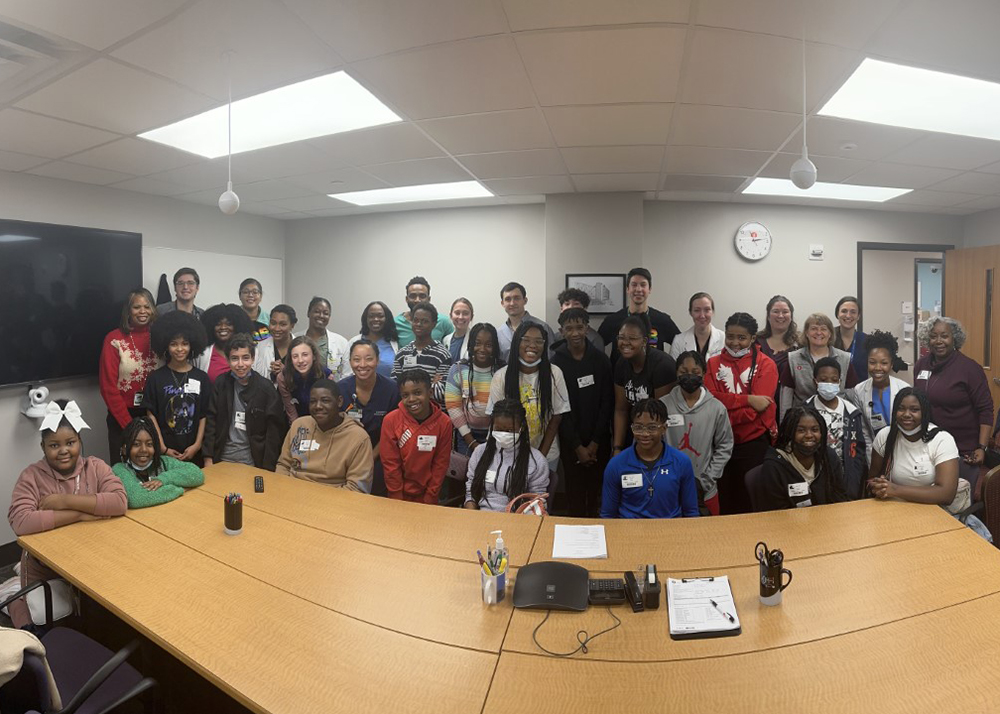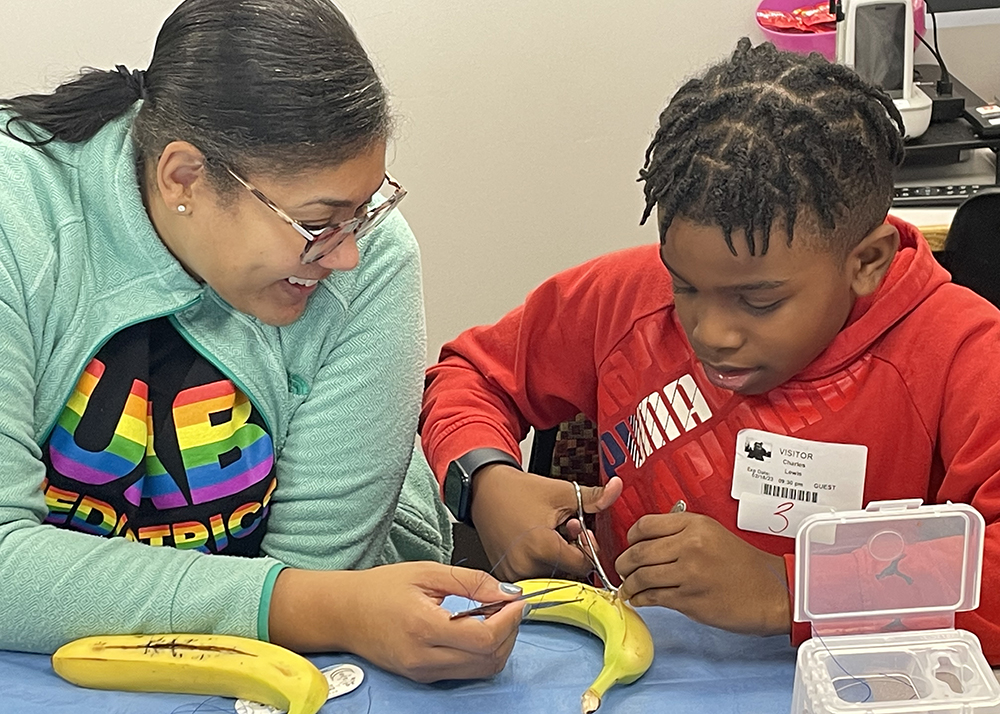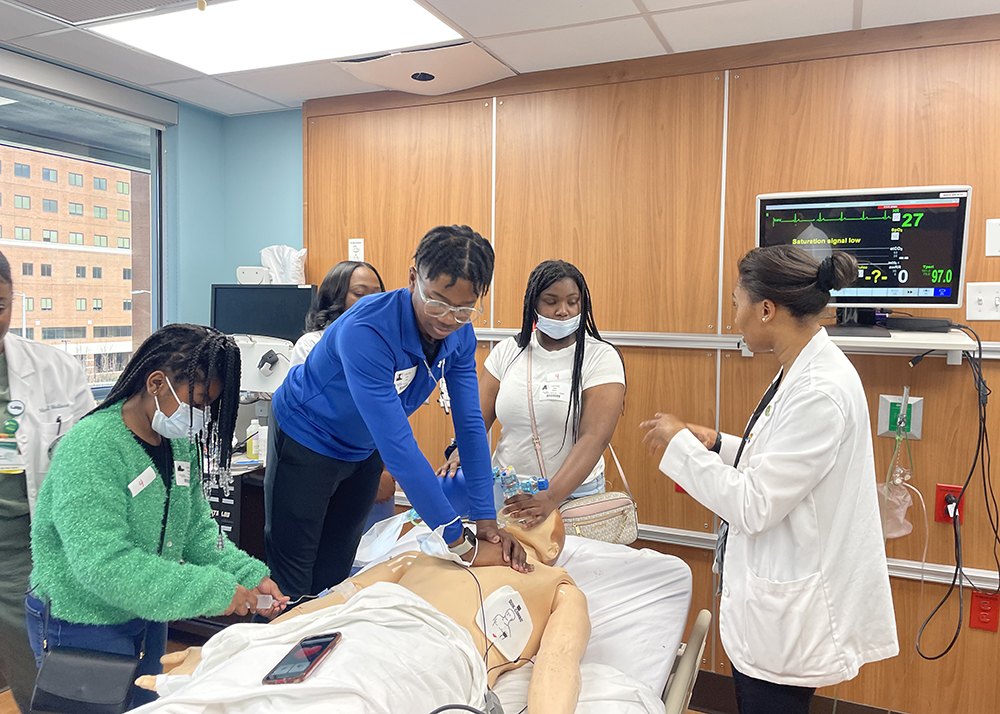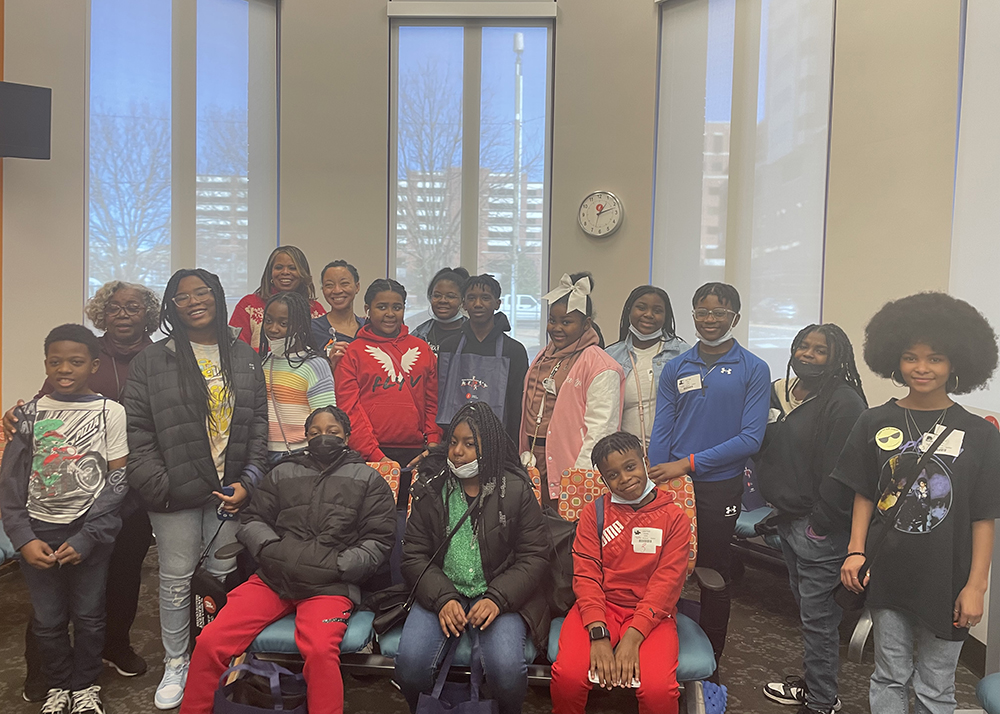
Black History Month as we know it now began in 1915 when historian Carter G. Woodson and Jesse E. Moorland founded the Association for the Study of Negro Life and History (ASNLH). This organization was dedicated to promoting and researching the many achievements by Black Americans that had been largely left out of history books. Eleven years after it was founded, the organization known today as the Association for the Study of African American Life and History (ASALH), proposed that the second week of February be declared Negro History Week. This week was selected because it coincided with the birthdates of Fredrick Douglass and Abraham Lincoln and the goal of the week was to further the sharing of information about Black life, history and culture.
It wasn’t until 50 years later during the United States’ 1976 Bicentennial that President Gerald Ford declared that Black History Month should be a nationally recognized celebration to be held every February. President Ford said that the public should “seize the opportunity to honor the too-often neglected accomplishments of Black Americans in every area of endeavor throughout our history.”
Since this initial declaration, every American president has designated February as Black History Month and chosen a specific theme for the month. This year’s theme is “Black Resistance.”
Though we have seen progress in America in the 97 years after the first Negro History Week and 47 years after the national recognition of Black History Month, systemic racism and racial injustice are still very much present in American society. The killings of George Floyd, Breonna Taylor, Ahmaud Arbery, Atatiana Jefferson in 2020 and the recent killing of Tyre Nichols in Memphis, TN by police sparked protests across America and the world calling for the elimination of systemic racism and racial injustice. Though it may seem insurmountable to solve the issue of racism in America, we can all take steps to work towards dismantling systemic racism through education and listening. Together we can make America a more just and equitable country for all.
Learn more about Black History Month here.
Check out the Diversity, Equity and Inclusion section below for events being held this month to celebrate.

This past Monday, Jan. 16, we celebrated the life and legacy of Civil Rights pioneer, Dr. Martin Luther King, Jr. Martin Luther King, Jr. (MLK) Day was signed into law as a federal holiday by President Ronald Reagan in 1983 and was first observed in 1986. It is celebrated on the third Monday of January so the day would fall around Dr. King’s birthday (he was born on Jan. 15). This day is not only a day to celebrate Dr. King’s life and legacy but is also recognized as a National Day of Service to encourage people to volunteer and improve their communities. On MLK Day and every day, Dr. King’s dream lives on in the hearts of millions of people who are taking action and giving back to their communities. We hope you were able to spend this day serving, educating others about Dr. King and celebrating the legacy of Dr. Martin Luther King, Jr.
Chrystal Rutledge, M.D.
Vice Chair for Diversity
 David Kimberlin, M.D., professor in the Division of Pediatric Infectious Diseases, has been inducted into the Association of American Physicians (AAP). The AAP is an honorary medical society that recognizes physicians who make outstanding contributions to basic and translational biomedical research.
David Kimberlin, M.D., professor in the Division of Pediatric Infectious Diseases, has been inducted into the Association of American Physicians (AAP). The AAP is an honorary medical society that recognizes physicians who make outstanding contributions to basic and translational biomedical research.
On Saturday, Feb. 18, the Department of Pediatrics Mini Medical School Program had its first field trip. Eighteen 6th and 7th graders came to the Pediatric Simulation Center at Children’s of Alabama and spent a half day learning first-hand how healthcare providers work in a hospital setting.
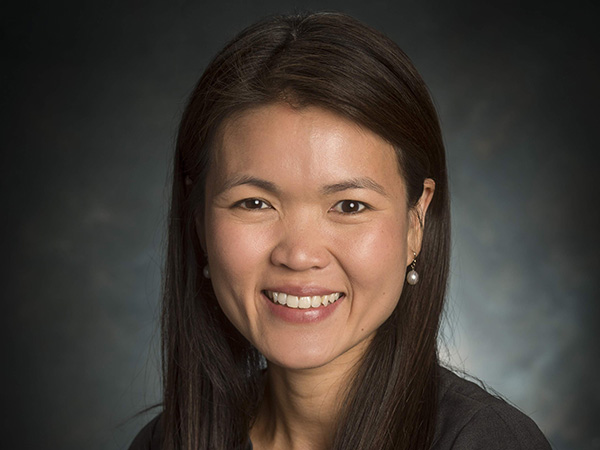 Michele Kong, M.D., professor in the Division of Pediatric Critical Care, has received the Charles C. Shepard Science Award.
Michele Kong, M.D., professor in the Division of Pediatric Critical Care, has received the Charles C. Shepard Science Award.
 During the February Pediatric Faculty Meeting, Mitch Cohen, M.D., chair of the Department of Pediatrics, held the annual Black History Month quiz. Those who correctly answered questions about Black historical and present day figures received books about Black history in Birmingham and the South.
During the February Pediatric Faculty Meeting, Mitch Cohen, M.D., chair of the Department of Pediatrics, held the annual Black History Month quiz. Those who correctly answered questions about Black historical and present day figures received books about Black history in Birmingham and the South.
 Tamera Coyne-Beasley and Michele KongTamera Coyne-Beasley, M.D., professor in the Division of Adolescent Medicine, and Michele Kong, M.D., professor in the Division of Pediatric Critical Care, has received the Heersink School of Medicine Professional Excellence Award.
Tamera Coyne-Beasley and Michele KongTamera Coyne-Beasley, M.D., professor in the Division of Adolescent Medicine, and Michele Kong, M.D., professor in the Division of Pediatric Critical Care, has received the Heersink School of Medicine Professional Excellence Award.
 Top L to R: Cecelia Hutto, Michael Seifert, Emily Johnston, Jesse Jones, James Odum, Veronica Sanchez and Lece WebbChildren’s of Alabama and the Kaul Pediatric Research Institute (KPRI) are pleased to announce the 2023 awards. The major goal of the KPRI grant program is to allow investigators to obtain data that will advantage applications for additional extramural funding. This will bring new knowledge to the care of children, leverage the investment of the KPRI, and allow projects to be competitive for the very best science on the national stage. A second, but important, goal is to ensure that a dedicated funding source is available to unique segments of the pediatric research, education, and quality improvement enterprise.
Top L to R: Cecelia Hutto, Michael Seifert, Emily Johnston, Jesse Jones, James Odum, Veronica Sanchez and Lece WebbChildren’s of Alabama and the Kaul Pediatric Research Institute (KPRI) are pleased to announce the 2023 awards. The major goal of the KPRI grant program is to allow investigators to obtain data that will advantage applications for additional extramural funding. This will bring new knowledge to the care of children, leverage the investment of the KPRI, and allow projects to be competitive for the very best science on the national stage. A second, but important, goal is to ensure that a dedicated funding source is available to unique segments of the pediatric research, education, and quality improvement enterprise.
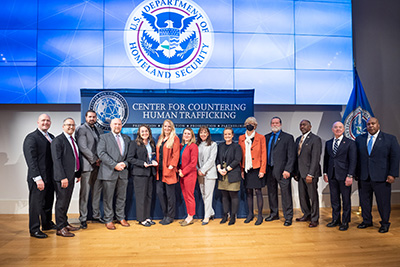 On Jan. 31, 2023, Kara Huls, M.D., assistant professor in the Division of Emergency Medicine, and Ashley Hodges, Ph.D., CRNP, nurse practitioner and program coordinator for the Sunrise Clinic at Children's of Alabama, received the inaugural Outstanding Victim Protection in Countering Human Trafficking Award by the Center for Countering Human Trafficking (CCHT) within the US Department of Homeland Security.
On Jan. 31, 2023, Kara Huls, M.D., assistant professor in the Division of Emergency Medicine, and Ashley Hodges, Ph.D., CRNP, nurse practitioner and program coordinator for the Sunrise Clinic at Children's of Alabama, received the inaugural Outstanding Victim Protection in Countering Human Trafficking Award by the Center for Countering Human Trafficking (CCHT) within the US Department of Homeland Security.

